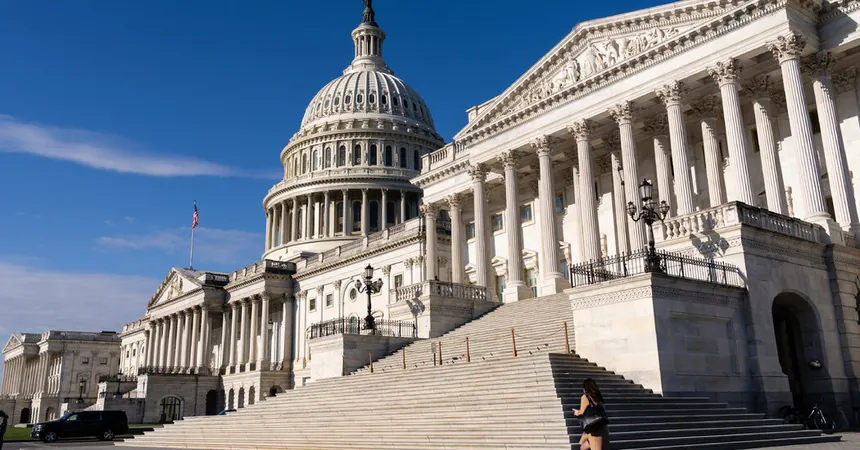
House Dismantles Overdraft Fee Cap: What It Means for Your Wallet
2025-04-09
Author: Jessica Wong
A Controversial Move by Congress
In a surprising decision, the House of Representatives took a bold step on Wednesday, voting to eliminate a $5 limit on overdraft fees that many banks charge. This resolution, passed by a close margin of 217 to 211, has stirred up significant debate among lawmakers and everyday Americans alike.
What’s at Stake?
The resolution did not stop there: it also repealed a crucial rule that would have granted the federal government enhanced oversight over payment apps operated by major tech giants like Apple and Google. The vote to eliminate this rule was just as tight, with a tally of 219 to 211.
Trump's Signature Awaits
With both the Senate and House in agreement, these resolutions are now on President Trump’s desk, awaiting his signature – which is widely anticipated. If he signs, it will officially revoke two significant regulations put in place towards the end of the Biden administration by the Consumer Financial Protection Bureau (CFPB), an agency designed to shield consumers from unfair banking practices.
Banking Lobby Cheers, Consumers Concerned
The banking industry is celebrating this legislative victory. Many banks have argued that imposing a cap on overdraft fees could lead to the end of overdraft services altogether, which many consumers rely on for unexpected expenses. Lindsey Johnson, CEO of the Consumer Bankers Association, emphasized that this repeal would benefit millions of Americans, particularly those lacking access to credit.
The Cost of Convenience
However, critics are sounding the alarm. Financial experts estimate that the fee limit would have saved American households a staggering $5 billion annually. Currently, the average overdraft fee hovers around $35, a hefty burden for the one in five Americans living paycheck to paycheck.
Partisan Politics at Play?
Adam Rust from the Consumer Federation of America criticized the decision, claiming it prioritizes partisanship over common sense, ultimately making life more expensive for those struggling to make ends meet.
Broader Implications for Digital Payments
In addition to the overdraft fee cap, lawmakers targeted a regulation that would have given the CFPB greater authority over digital wallets and payment apps. This move puts the bureau at odds with figures like Elon Musk, who is looking to enhance payment systems on his platform, X.
A Diminished CFPB?
The CFPB has faced relentless criticism from Trump and his allies, with attempts to drastically reduce its capabilities and workforce. A federal injunction has allowed the bureau to continue to function, albeit at a diminished capacity.
What's Next?
As the nation awaits President Trump’s decision, the implications of these legislative moves will undoubtedly ripple through American households and the tech industry alike. It remains to be seen how this will affect consumer confidence and financial practices in the long run.





 Brasil (PT)
Brasil (PT)
 Canada (EN)
Canada (EN)
 Chile (ES)
Chile (ES)
 Česko (CS)
Česko (CS)
 대한민국 (KO)
대한민국 (KO)
 España (ES)
España (ES)
 France (FR)
France (FR)
 Hong Kong (EN)
Hong Kong (EN)
 Italia (IT)
Italia (IT)
 日本 (JA)
日本 (JA)
 Magyarország (HU)
Magyarország (HU)
 Norge (NO)
Norge (NO)
 Polska (PL)
Polska (PL)
 Schweiz (DE)
Schweiz (DE)
 Singapore (EN)
Singapore (EN)
 Sverige (SV)
Sverige (SV)
 Suomi (FI)
Suomi (FI)
 Türkiye (TR)
Türkiye (TR)
 الإمارات العربية المتحدة (AR)
الإمارات العربية المتحدة (AR)